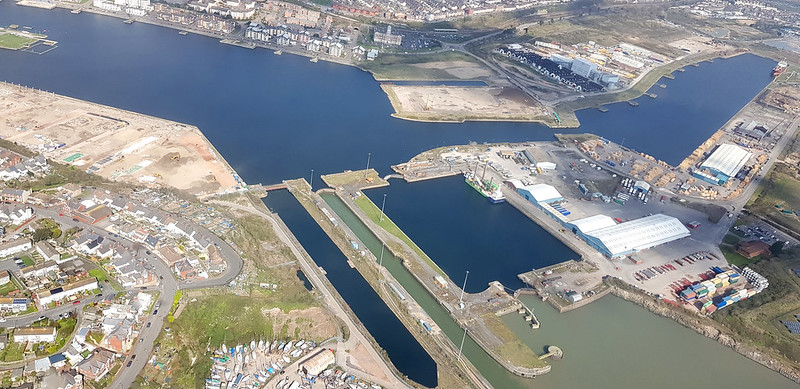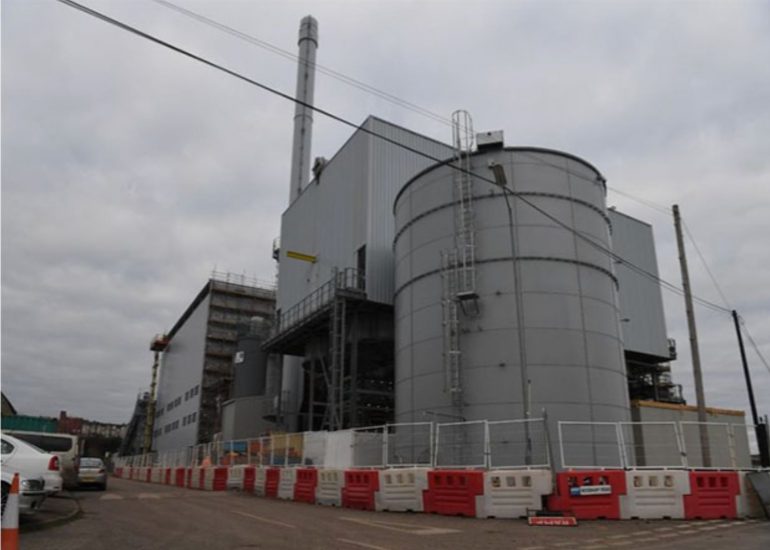Opposition councillors condemn report into the council’s handling of the original planning application
OPPOSITION councillors in the Vale of Glamorgan have criticised a report carried out into the council’s handling of the Barry Biomass planning permission process.
The report was commissioned by the council after concerns were raised about how the controversial plant was given planning permission back in 2015.
Some Barry residents have been campaigning against the incinerator for more than 10 years.
At Monday’s full council meeting, where councillors voted 26-18 in favour of recognising the report, some members claimed that they had been given insufficient opportunity to debate the original planning request..
The report, carried out earlier this year by a barrister, found “no evidence of illegality or maladministration” within the council and no “cause for any concern that Officers acted negligently or unprofessionally”.

But opposition councillors told the meeting they were unimpressed with the report’s findings.
Conservative Councillor Vincent Bailey said: “The review feels as though it were neither independent nor thorough.
“Clearly verbal conversations between officers have not been accounted for, and whilst that would require a test of memory of those involved – you cannot stretch to call this a blanket exoneration on this basis.
“This is not the review that we asked for, and I hope that fellow councillors will join me in rejecting it as a half-baked and disappointing attempt to smooth over the many deeply held concerns that members of the public have.”
Plaid Cymru Councillor Steffan William said: “This report is an insult to the people of Barry. If we really do care about our environment then we should be rejecting this report because it’s nonsense.”
Plaid Cymru Councillor Nic Hodges criticised the 2015 planning committee that approved the biomass plant.
“July 30, 2015 is a date that will go down in infamy,” said Coun Hodges.
“The debate was gagged, I was gagged, I wished to talk about the environmental impact, the noise impact, and I was prevented from doing so. This meeting lost our council all control over the issue.”

Fellow Plaid Cymru Councillor Ian Johnson, said: “I don’t understand why officers didn’t listen to the suggestions… was that groupthink? was that arrogance that they are better than members of the public? Were they being lobbied from elsewhere? Was pressure being put on them? I really don’t know.”
Much of the debate centred on the reason why an Environmental Impact Assessment (EIA) was not carried out before planning permission was granted.
The biomass plant was not designated a ‘scheduled one’ application which meant that it did not require an EIA.
A decision was made by the planning committee that would not have been made had an EIA been done
Councillor Ian Johnson
Plaid Cymru
The Barrister who conducted the review, Annabel Graham Paul, was present at the meeting and said: “It may well in hindsight now be right that it should have been treated as schedule one development but that does not mean that the officers were acting negligently or unlawfully in reaching the judgement that they did at the time.”
An enforcement notice was issued to Barry Biomass in September by the Vale of Glamorgan Council after inspectors found the structure was different to the original approved plans.
The company made a ‘ground A’ appeal which means that the Welsh government will now decide on the future of the plant.



